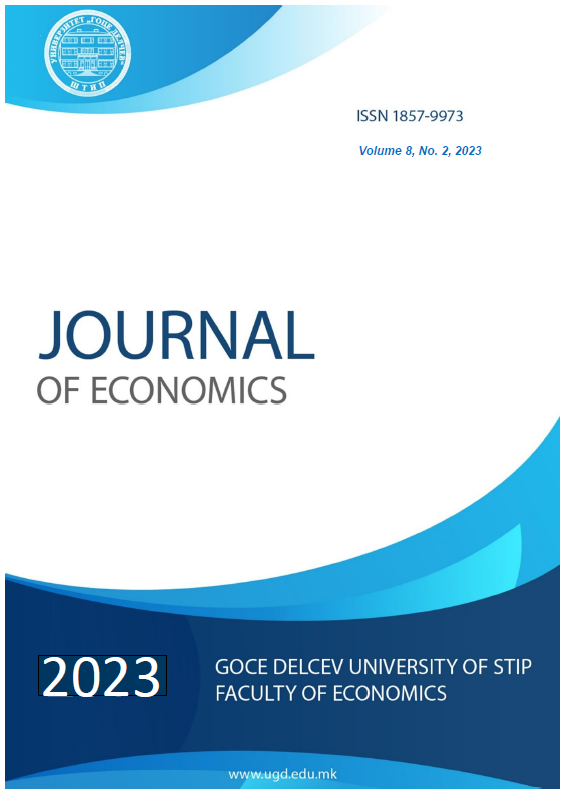Assessment of the current energy and price crisis impact on the Macedonian business sector
DOI:
https://doi.org/10.46763/10.46763/JOE2382063amKeywords:
Business sector, Covid-19 crisis, economic implications, energy and price crisis, North Macedonia.Abstract
In the past few years the world economy has faced with several serious economic crises, which have overlapped with each other. Firstly, the crisis determined by the Covid-19 pandemic, that has begun in 2020 as a health crisis in a short time has been recognized as a biggest economic shock of the 21st century on a global scale. Secondly, the period of economic recovery that took place in 2021, in the same time with the economic growth brought an increase in energy prices, especially oil and natural gas prices, as well as in food prices. Such tendencies have significantly intensified with the beginning of the war in Ukraine in February 2022, and plunged the world economy into a new energy and price crisis. All these subsequent crises dealt a heavy blow to the world population from an economic and social aspect and made it difficult for companies to operate normally on global scale. All these circumstances from the world economic scene have been quickly spilled over into the Macedonian economy, plunging the country into several overlapping crises. The aim of the paper is to provide more in-depth inside into the impact of the energy and price crisis on the performance of the Macedonian business sector. To fulfil this goal, we conduct a survey for the business sector. The paper is organized as follow. At the beginning of the paper an overview of the economic impact of Covid-19 crisis and energy and price crisis on the global scale is given. Further in the paper the economic implication of the pandemic and the current energy and price crisis in North Macedonia are elaborated. Analyzes of the economic impacts of the crises is based on the movement of the key macroeconomic indicators as: GDP growth rates, inflation, industrial production, gross debt, etc. Within the paper is also analyzed the impact of the current energy and price crisis on the Macedonian business sector based on the results of our own survey, conducted by the Center for Strategic Research “Ksente Bogoev” of MANU. The questionnaires used as an instrument for data collection were distributed electronically to the respondents (enterprises). The data collection period was one week (from 1 to 7 March, 2023). The survey was responded by 38 enterprises. The survey results give us a more comprehensive picture about the situation in the country, referring to the economic implications of the energy and price crisis on the business sector and satisfaction of the business sector with the implemented government measures.


